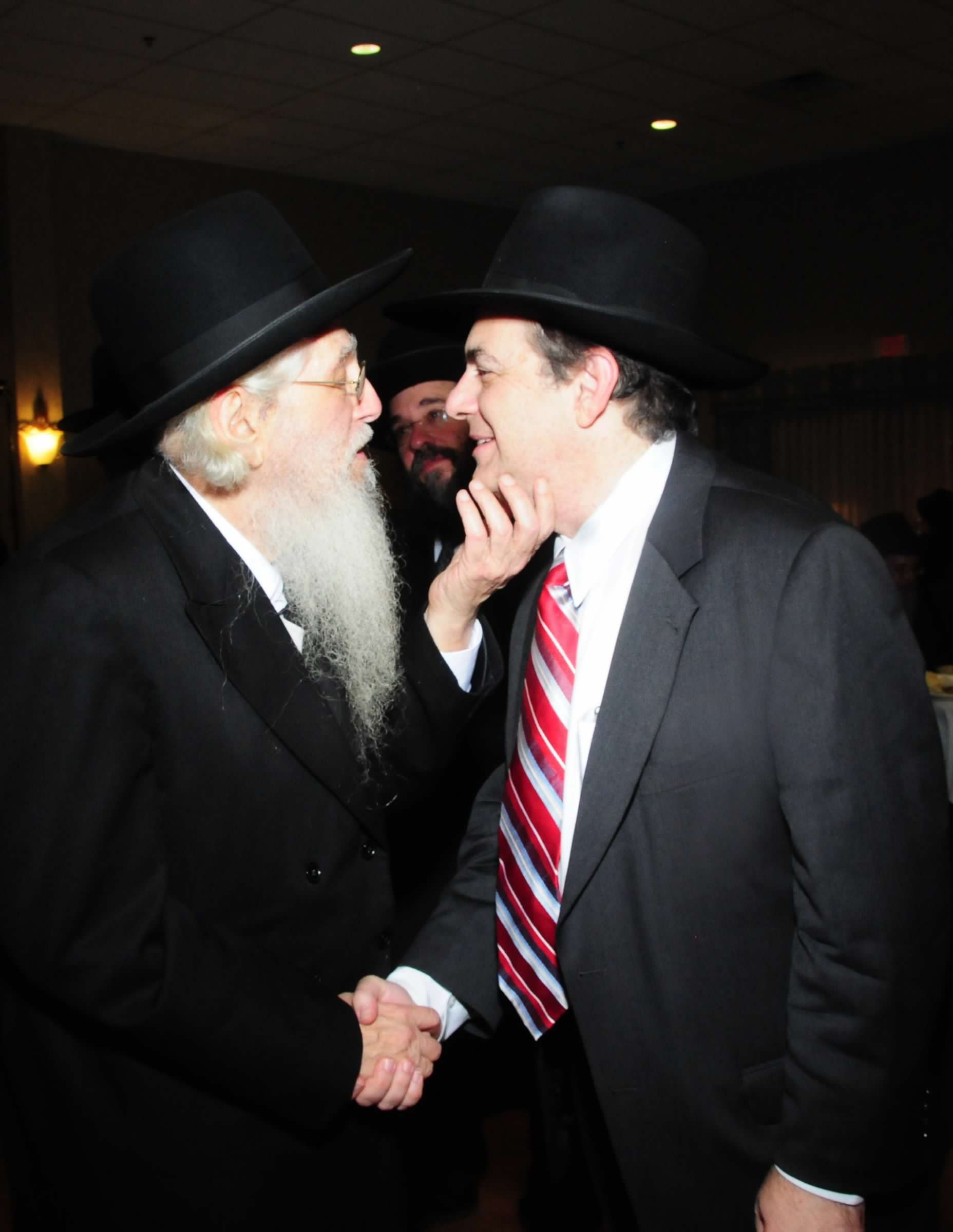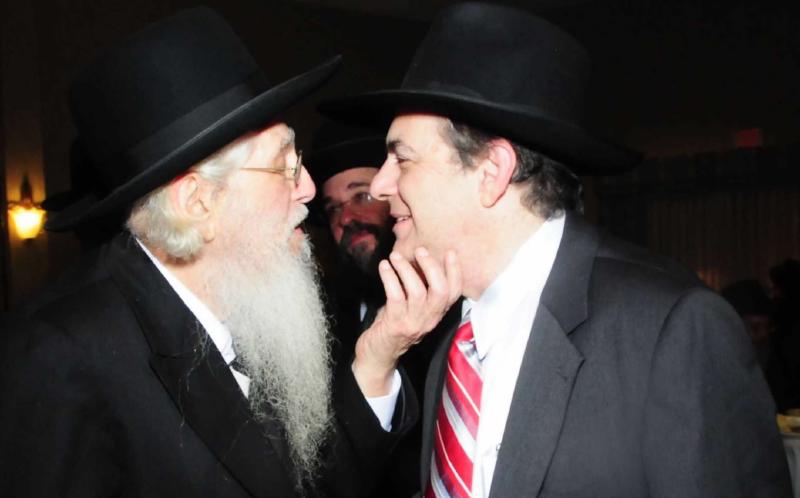Rabbi Elazar ben Shammua said: let the honor of your student be as dear to you as your own, and the honor of your colleague as the reverence for your teacher, and the reverence for your teacher as the reverence of heaven.
From Avos Chapter 4, Mishna 12 - Translation by Sefaria
This is the second post in a series about my Rosh Yeshiva, Rav Aaron Schechter זצ״ל. I want to stress again, that I am neither qualified nor capable of writing a biography of the Rosh Yeshiva זצ״ל. The Rosh Yeshiva’s memory should not be confined to the musings of Lilliputians like myself. I am just recording my memories and the life lessons I learned whilst being blessed to live in the presence of a giant such as the Rosh Yeshiva זצ״ל.
Rejoice with Trembling
If you’ve got the impression from my previous post, that the Rosh Yeshiva זצ״ל was a warm and cuddly Zeide figure, I’m afraid I’ve misled you. The protocols of decorum towards one’s Rosh Yeshiva in Chaim Berlin were extreme, even for regular Yeshivas. I’m told this was put in place by the previous Rosh Yeshiva, Rav Yitzchak Hutner זצ״ל. The Rosh Yeshiva was revered and feared by all. And he didn’t suffer fools gladly. Even so, the love that he had for his students was felt by us at all times. He was known for having a smile that would light up the room. He was also known for the direct and no-holds-barred way he could express his disapproval.
Critics of religion will often note the contradictory nature of the commandment to fear G-d, and the commandment to love G-d. Students of the Rosh Yeshiva have no problem appreciating how this is no contradiction at all. Because we felt the love of the Rosh Yeshiva, as well as his greatness of character, our love for him caused us to fear disappointing him even more.
Unworthy Questions
I never asked him, but I would imagine Rosh Yeshiva זצ״ל was not a fan of the saying “There’s no such thing as a stupid question”. Firstly, the word stupid is not a word that ever left the lips of the Rosh Yeshiva. He would view such verbiage as coarse and unbecoming of a Torah Jew. But more to the point, the Rosh Yeshiva would lambaste students for asking (what we’ll call) ‘unworthy’ questions, with some regularity.
A type of question the Rosh Yeshiva had particular contempt for was the lazy question. Where the questioner blurts out a question because he can’t be bothered to expend the necessary mental resources to come up with the apparent solution himself. The Rosh Yeshiva saw his role as facilitating a student’s deeper understanding and thoughts in Torah. He was not going to do the thinking for you.
There was a certain student whom the Rosh Yeshiva loved dearly and took under his wing, who he felt was guilty of this laziness to a certain degree. In trying to rid him of this habit, he would occassionally dismiss an “offending” question asked by this person with verbal carnage that made everyone else in the room uncomfortable. Once he even kicked this person out of the room for asking a question. He then told everyone else present, when he saw us all, mouths agape in horror, that he did so “because he is a good man, and I can be sure that when he comes back he will be a greater man.” (I’m not certain about the exact wording the Rosh Yeshiva used, but it was along those lines.)
If you’re worried about this person, it is true what the Rosh Yeshiva said about him. He did come back a greater man. I never received anything near that level of harsh treatment. The Rosh Yeshiva knew I wouldn’t be able to handle it.
Respect for all Students
At this point, one thing needs to be made clear. While the Rosh Yeshiva could be harsh in response to a question or a behavior, he would never treat the student himself with any form of disrespect. He would also demand that when referring to fellow talmidim, or anyone for that matter, they were referred to with the proper respect. For example, he would take umbrage with someone referring to the talmidim as “guys”. Someone telling the Rosh Yeshiva that “so-and-so is a good guy”, would get a lecture about how the word “guy” is a diminutive term.
In Parashas Bereishis, the Rosh Yeshiva would note regarding the verse (Genesis 2:15):
And HaShem took the Adam and placed him in the garden of Eden…
Rashi, on this passuk, quotes a Medrash explaining that it doesn’t mean He picked him up and placed him in the Garden, but rather that He convinced him with words to go to the garden.
“How did חז״ל know this?”, the Rosh Yeshiva asked, “How does he know the meaning isn’t simply that He picked him up and placed Adam in the garden!? Isn’t that the simple reading of the passuk?”
The Rosh Yeshiva answered, “No, the simple reading of the passuk is like Rashi. The verb ’to take’ means different things in different contexts. A man is not a sack of potatoes that you pick of here and place there. When referring to men, ’to take’ means with words.”
With the Rosh Yeshiva this was clear. Your fellow man was to be treated with dignity and respect becoming “the image of G-d” in which he was created. He was not a sack of potatoes.
Care for all Students
The Rosh Yeshiva cared for all the students in the Yeshiva deeply. Even more than they knew. I could probably write a book about this alone. I will suffice it to say that some students in the Yeshiva would possibly be considered “weak students” or worse by most accounts. When I got a little closer to the Rosh Yeshiva, he would often inquire about these students. I think, given my background, he felt I could relate to, and help, students who were struggling. On numerous occasions, he asked me to learn with a bochur who was struggling for a zman, instead of with the study partner I had planned to study with. He explained to me that the Torah you learn while lifting the spirits of a fellow Jew is Toras Chessed, the Torah of kindness. He understood that it can be very disheartening for someone not thriving in a Yeshiva. He did all in his power to maintain a connection with these students and set them on a good path in life, even if it wouldn’t be within the walls of a yeshiva.
There was a certain young man in the Yeshiva who had a depressive temperament. On more than one occasion, the Rosh Yeshiva had me go check the dormitory to see if he was in bed.
“If you find him there, tell him I would like it very much if he would come over to talk to me,” the Rosh Yeshiva would say, “because he’s a good man and I enjoy speaking with him.”
I will always be grateful to the Rosh Yeshiva for this. Not only for his care, but for the way he encouraged me to care, and gave me an awareness of being נושא בעול חבירו, shouldering your brother’s burden. We revered him, but all the while, we felt his love.

